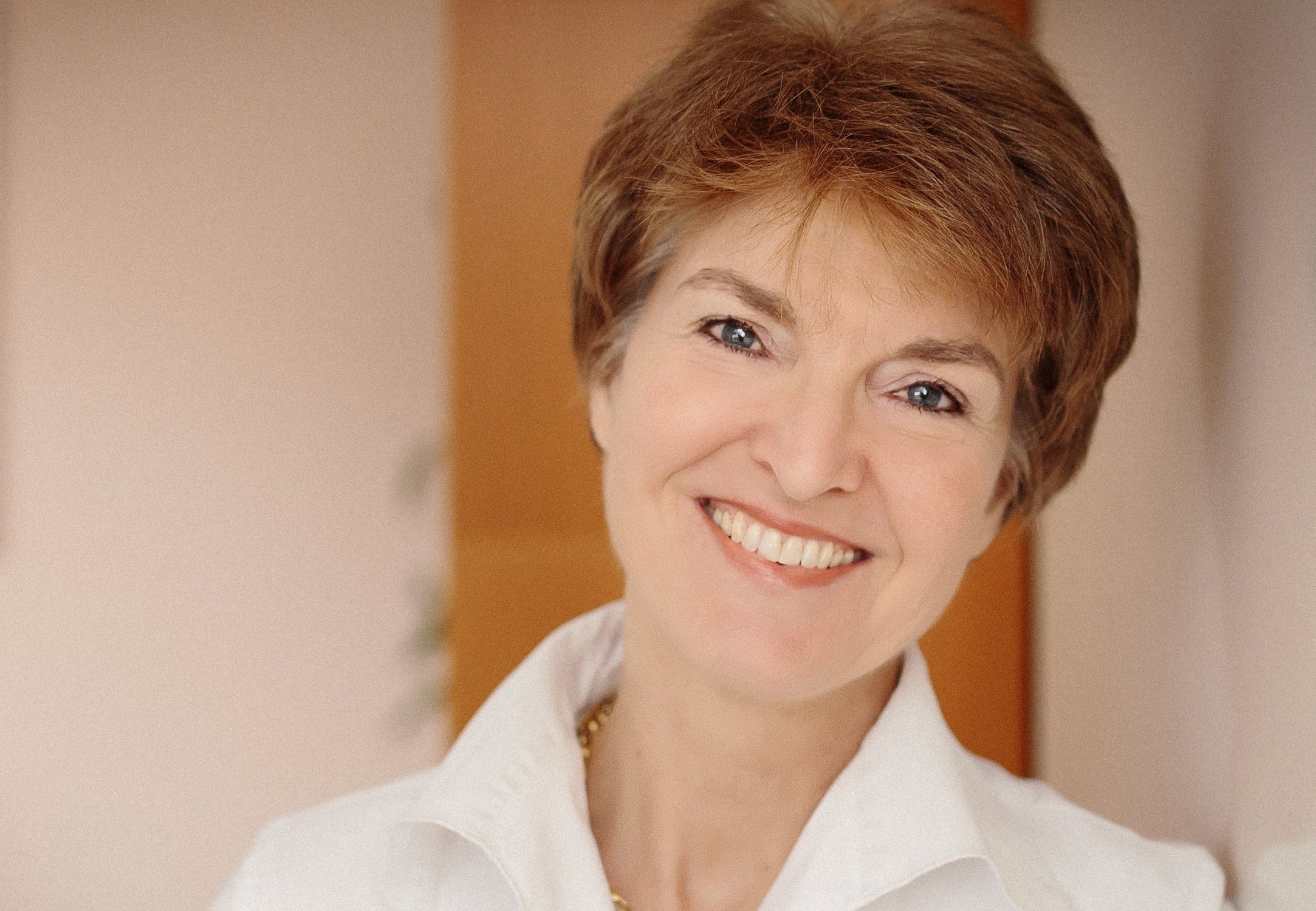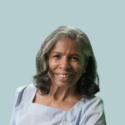
Karen Nanninga is a former assistant, now trainer and coach for management support professionals and initiator of “Embrace Life!”, a programme for women with breast cancer
Can we start with a little background information? Where are you from and what is your current role?
I was born in The Netherlands where I grew up and studied. My personal path brought me to France and Germany, where I have lived since 1994.
As a trainer and coach I support and encourage professionals to optimize their potential and to shape their roles in order to create win-win situations in their personal professional environments. Management support, with its broad variety of topics, is my main area for training, coming from the Assistant profession myself. My working languages are Dutch, German, French and English. I give training throughout the whole of Europe and have coaching clients worldwide.
What is your background?
I graduated from the European Secretarial Academy and got my first job in Paris. Being fascinated by different cultures and speaking four languages, working in an international environment was a must. Back in The Netherlands, I worked as a Personal Assistant in a diplomatic environment and after that as Executive Assistant for the board of a multinational company, totally different jobs with amazing opportunities to develop my competencies and skills.
Professional and personal development, especially for our profession, has always had my attention. In the ‘80s the secretarial profession was changing enormously, with the first computers entering the workplace and the paperless office on the horizon. The image of the profession did not at all match the identity of a professional in her/his own right with a growing expanse of independent tasks and responsibilities and I wanted to contribute to improving that. In 1989 I became a member of IMA, International Management Assistants (formerly EUMA), became Chairman of the group in The Netherlands soon after and also held the position of Executive Chairman from 1997 till 2001.
The voluntary work for EUMA/IMA as Chairman led to invitations for speaking engagements, to moderate conferences and lead panel discussions, to participate in projects for the profession, to be a judge for the Secretary of the Year elections, to participate in several World Administrators Summits, to lead trainings and workshops, and to write for magazines and newsletters throughout the whole of Europe. I loved it and developed my own business, KN management support, more than 25 years ago.
I studied modules of psychology, management and organizational subjects and followed train-the-trainer courses. Then I discovered coaching and felt excited by the opportunities I saw to help people, naturally also Assistants, to grow their professionalism beyond their skills and competencies. I took the complete coach training with CTI (Coach Training International), followed by the certification programme accredited by ICF (International Coach Federation) and graduated from the CTI Leadership programme, another amazing personal development journey.
I am also a certified Medical Coach. Medical coaching is a particular coaching discipline. It aims at supporting clients to develop emotional and mental resilience in a (chronic) disease situation or illness related crisis, to cope with their challenges and to create an emotional and mental well-being and quality of life according to their personal values, wishes and objectives.
Tell us more about coaching and how Assistants can benefit from this
My credo is: “Take responsibility proactively, develop competence, live your strengths and talents, remove your barriers and shape your own contribution.” I teach this in trainings, seminars, workshops and courses and this is the basis for coaching. “Be curious regarding change and open to discover your next steps and take them!”
This is all about self-empowerment from within. We can read great books and articles, participate in training, understand the principles: the challenge, however, is to really link theory and practice, to erase non-serving mental patterns, in order to sustainably integrate new insights and skills. This is how we develop and expand our personal professionalism. What counts after all is the transfer to one’s own daily (work) life. This is a very personal issue, without standard solutions, as we all have different personalities, backgrounds, competencies, values and contexts.
That is what makes me passionate about coaching, definitely also in combination with training. I have over 650 hours of coaching experience. I support or guide professionals in their quest for change and development. To them I am a sparring partner, a companion and a motivator for positive and future-oriented changes. These can be issues they encounter in their professional roles, or personal(ity) issues they wish to explore. Often these things go hand in hand as “I is always accompanied by Me and Myself”, in any environment.
What are the challenges you believe Assistants will face in the future?
In my programmes for Executive Assistants we always address this issue. What becomes obvious time and again is that the participants see their challenges in the interface position, in communication, co-operation and interaction; in managing different personalities, in managing multiple bosses with different “agendas” and priorities. They may struggle with developing into a sparring partner with the focus on the strategic goals whereas many operational/routine tasks and issues demand attention.
Working out the balancing act of differences in the intelligence level of the various tasks involves delegating without hierarchical power; managing diversity in a global and intercultural environment; gaining higher qualifications and more responsibility; problem solving and conflict management, to name a few. Emotional intelligence also plays a big role: how to maintain the human factor in business, to reinforce relationships and to have influence when emotional aspects are being neglected in a performance-oriented business climate.
Today there’s a huge focus on digitization and artificial intelligence. My experience is that, of course, assistants need to be on top of technological developments, yet the applications and techniques are tools for more efficiency. In the end effective management support is about assisting the management to achieve the goals. The real challenge is for Assistants to understand these, the dynamic environment around them and then to define their role and priorities according to their own specific context.
I’d like to take it even further. Mostly the challenges are discussed within the borders of the profession as we know it. We talk about “reinventing the role” from the now-perspective. In my view we should be courageous enough to cut loose from this perspective and ask ourselves different questions aiming at “reinventing MY role”: Who am I, what are my unique values and qualities, how can I best offer them in my specific context, what becomes possible when I take influence in my direct environment and beyond, what needs developing?
Our roles are so much more than our job descriptions and professional profiles. Individual shaping of one’s role and unique contribution requires metaview and a broad horizon in order to expand the range. Flexibility, openness, curiosity, creativity and a proactive and innovative approach must be part of our mindset, as well as collaboration for win-win relationships.
Tell us the story behind the “Embrace Life!” programme
It is the story of my personal development and I mostly tell it backwards. I have set up my voluntary programme “Embrace Life!”, that contains psycho-oncological support, medical/life coaching and a series of five different day workshops for women with and after breast cancer. And this is, like my other work, all about self-empowerment, what I am so passionate about.
Some years ago, I asked myself “What can my unique contribution to the world be, what can I give that makes a difference to the lives of people?” I had the vision of this programme and embarked on the journey. I felt that my unique contribution would be my experience as a trainer and a coach combined with my own life experience.
Twelve years ago, I was diagnosed with breast cancer myself and this process taught me such valuable lessons about dealing with illness, about healing and about life. I very strongly felt that I wanted to pass all that on to other women and to provide insights and tools for them to steer their processes their own way.
Soon after I had designed the basis for the programme I discovered the Medical Coaching Training and Certification and I use these additional skills in the workshops as well as for the work with individual coaching clients.
It may seem a strange combination: management assistants and women with breast cancer. Yet to me it is a logical one: apart from the fact that it mostly concerns women, the message is the same: “Live your potential to the fullest and empower yourself to take full responsibility for your path”.
What inspires and motivates you?
Firstly, it’s people, life, the very essence of who we are as human beings, what drives us at our core, the connection of body-mind-soul, our amazing inner strengths and our potential to master life in all its aspects.
Also, nature, to which I feel deeply connected. This connection brings me back to myself and nurtures me. I regularly take a time-out, preferably to the woods or the mountains, to recharge my battery or to put a healthy distance between me and the daily stuff and ask myself: what really matters?
Last, but certainly not least, my clients and training participants, who, when they say “yes” to themselves, courageously take steps and achieve goals beyond all expectations. It makes me feel grateful and humble for being an instrument to their discovery, development and growth.
So, what’s next for Karen Nanninga? Where do you want to be in five years’ time?
I will have further expanded my coaching practice in the areas of Life, Professional and Medical Coaching.
The programme “Embrace Life!” will be well-known throughout Germany and The Netherlands and maybe even beyond. I will have trained a team of coaches to lead the workshops and retreats with me and we’ll have set up a thriving community.
The focus will continue to be on self-empowerment and living our potential. And back to the Assistant role: don’t we all have the right to live our potential and feel fulfilled in our jobs?
I get a smile on my face when I imagine the ripple effect … What becomes possible? Wow!













